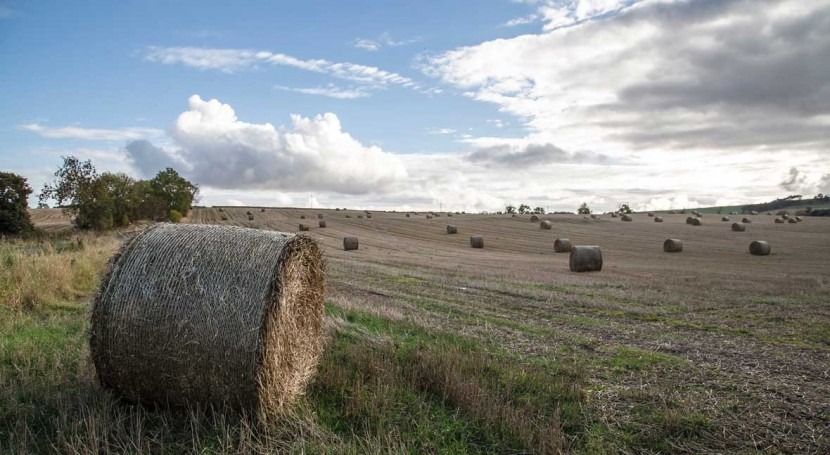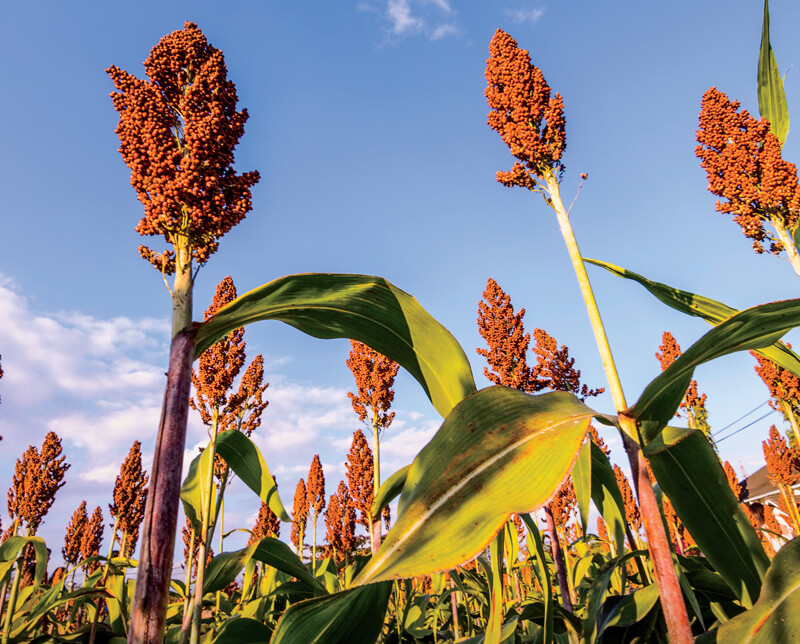 Unchecked climate change could drive Britain's crop growing north and west, leaving the east and south east unable to support crop growing, new research suggests.
Unchecked climate change could drive Britain's crop growing north and west, leaving the east and south east unable to support crop growing, new research suggests.Foodfarmnewstv
FADAMA 111 PROJECT ADDITIONAL FINANCING
Bestchange
Search This Blog
Labels
- News (414)
- Images speak (40)
- Press Release (39)
- livestock (30)
- FACAN (29)
- Editorial (23)
- Seed (20)
- Biotechnology (18)
- GM (18)
- Research (15)
- wheat (14)
- AFAN (13)
- Special Report (12)
- Cassava (11)
- Rice (10)
- Global news (9)
- Image Speaks (9)
- Maize (9)
- Soil (8)
- Coconut (7)
- Fertilizer (7)
- Yam (7)
- Bt cowpea (6)
- Disease (6)
- Ginger (6)
- Potato (6)
- World Soil Day (6)
- Animals (5)
- Apple (5)
- Cocoa (5)
- Oil Palm (5)
- Tomatoe (5)
- new (5)
- Cashew (4)
- Climate change (4)
- NCARD (4)
- World Food Day (4)
- Fish (3)
- Interview (3)
- National Council meeting on Agriculture. (3)
- Organic agric (3)
- Plant & genes (3)
- Plant genes (3)
- Project (3)
- Sesame (3)
- Shea butter (3)
- AI Research on Agriculture (2)
- Achia (2)
- African Cherry (2)
- Communique (2)
- Cotton (2)
- Extension services (2)
- HAPPY NEW YEAR (2)
- Horticulture (2)
- Insurance (2)
- Kenaf (2)
- Opinion (2)
- Sorghum (2)
- Sunflower (2)
- Tomato (2)
- Turmeric (2)
- seasons greetings (2)
- Artemesia (1)
- Biodiversity (1)
- Birds (1)
- Carrot (1)
- Discovery (1)
- Donkey (1)
- Facts sheets (1)
- Flash Flood (1)
- GES (1)
- GMO Rice (1)
- Garlic (1)
- Gene editing (1)
- Genetic (1)
- Groundnut (1)
- Jute bag (1)
- Locust bean (1)
- MERRY XMAS (1)
- Machinery (1)
- Mango (1)
- Milk (1)
- Okra (1)
- Post-harvest losses/ Food Waste (1)
- Presentation (1)
- Seaweed (1)
- Senate (1)
- Soybean (1)
- Tumeria (1)
- Walnut (1)
- bt cotton (1)
- flood (1)
- fruits (1)
- millet (1)
- water (1)
Total Pageviews
SPONSORED

Nigerian Institute of Soil Science- NISS
Translate to Other Languages
Latest News
Thursday 21 November 2019
Climate change could drive British crop farming north and west
 Unchecked climate change could drive Britain's crop growing north and west, leaving the east and south east unable to support crop growing, new research suggests.
Unchecked climate change could drive Britain's crop growing north and west, leaving the east and south east unable to support crop growing, new research suggests.Wednesday 20 November 2019
Climate change: Coalition promises $650 m to African farmers
A
coalition of donors, aid institutions and philanthropy has promised to invest
more than US $650 million in the CGIAR (formerly the Consultative Group for International Agricultural Research) System Organization to help 300 million
smallholder farmers in developing countries towards awareness to impacts of climate change, which already are
eroding crop and livestock productions in places like sub-Saharan Africa and
South Asia.
Sorghum grain yield could be doubled
 Plant scientists at Cold Spring Harbor Laboratory (CSHL) and USDA's Agricultural Research Service (ARS), in their search for solutions to global food production challenges, have doubled the amount of grains that a sorghum plant can yield.
Plant scientists at Cold Spring Harbor Laboratory (CSHL) and USDA's Agricultural Research Service (ARS), in their search for solutions to global food production challenges, have doubled the amount of grains that a sorghum plant can yield.Tuesday 19 November 2019
New possibilities for gene therapies with spin of the Sleeping Beauty transposase
Monday 18 November 2019
Did an extraterrestrial impact trigger the extinction of ice-age animals?

A controversial theory that suggests an extraterrestrial body crashing to Earth almost 13,000 years ago caused the extinction of many large animals and a probable population decline in early humans is gaining traction from research sites around the world.
Sunday 17 November 2019
Food Security: Oyo Government, society partner to combat weeds on water ways
The Oyo Government has expressed interest to establish a synergy with the Weed Science Society of Nigeria to combat the challenges of weeds on food security occasioned by impacts on water ways and other decaying antiquated infrastructures in the state.
AFDB intensifies technologies transfer to reduce poverty,
· Injects Vitamin A cassava in Benin
Republic...

African Development Bank (AfDB) led by Nigerian Dr.
Akinwunmi Adesina has reiterated its readiness to intensify the use of improved
technologies in the shelves of research institutes in the African continent by
farmers, saying this would reduce poverty rate with Pro vitamin A cassava
variety already being introduced to Benin republic farmers. This was contained
in statement issued to Feed Africa group last week.
Antimicrobial resistance is drastically rising
 The world is experiencing unprecedented economic growth in low- and middle-income countries. An increasing number of people in India, China, Latin America and Africa have become wealthier, and this is reflected in their consumption of meat and dairy products. In Africa, meat consumption has risen by more than half; in Asia and Latin America it is up by two-thirds.
The world is experiencing unprecedented economic growth in low- and middle-income countries. An increasing number of people in India, China, Latin America and Africa have become wealthier, and this is reflected in their consumption of meat and dairy products. In Africa, meat consumption has risen by more than half; in Asia and Latin America it is up by two-thirds.Saturday 16 November 2019
The world is getting wetter, yet water may become less available for North America and Eurasia
 With climate change, plants of the future will consume more water than in the present day, leading to less water available for people living in North America and Eurasia, according to a Dartmouth-led study in Nature Geoscience. The research suggests a drier future despite anticipated precipitation increases for places like the United States and Europe, populous regions already facing water stresses.
With climate change, plants of the future will consume more water than in the present day, leading to less water available for people living in North America and Eurasia, according to a Dartmouth-led study in Nature Geoscience. The research suggests a drier future despite anticipated precipitation increases for places like the United States and Europe, populous regions already facing water stresses.Friday 15 November 2019
Harnessing tomato jumping genes could help speed-breed drought-resistant crops
 Once dismissed as 'junk DNA' that served no purpose, a family of 'jumping genes' found in tomatoes has the potential to accelerate crop breeding for traits such as improved drought resistance.
Once dismissed as 'junk DNA' that served no purpose, a family of 'jumping genes' found in tomatoes has the potential to accelerate crop breeding for traits such as improved drought resistance.
Subscribe to:
Posts (Atom)






